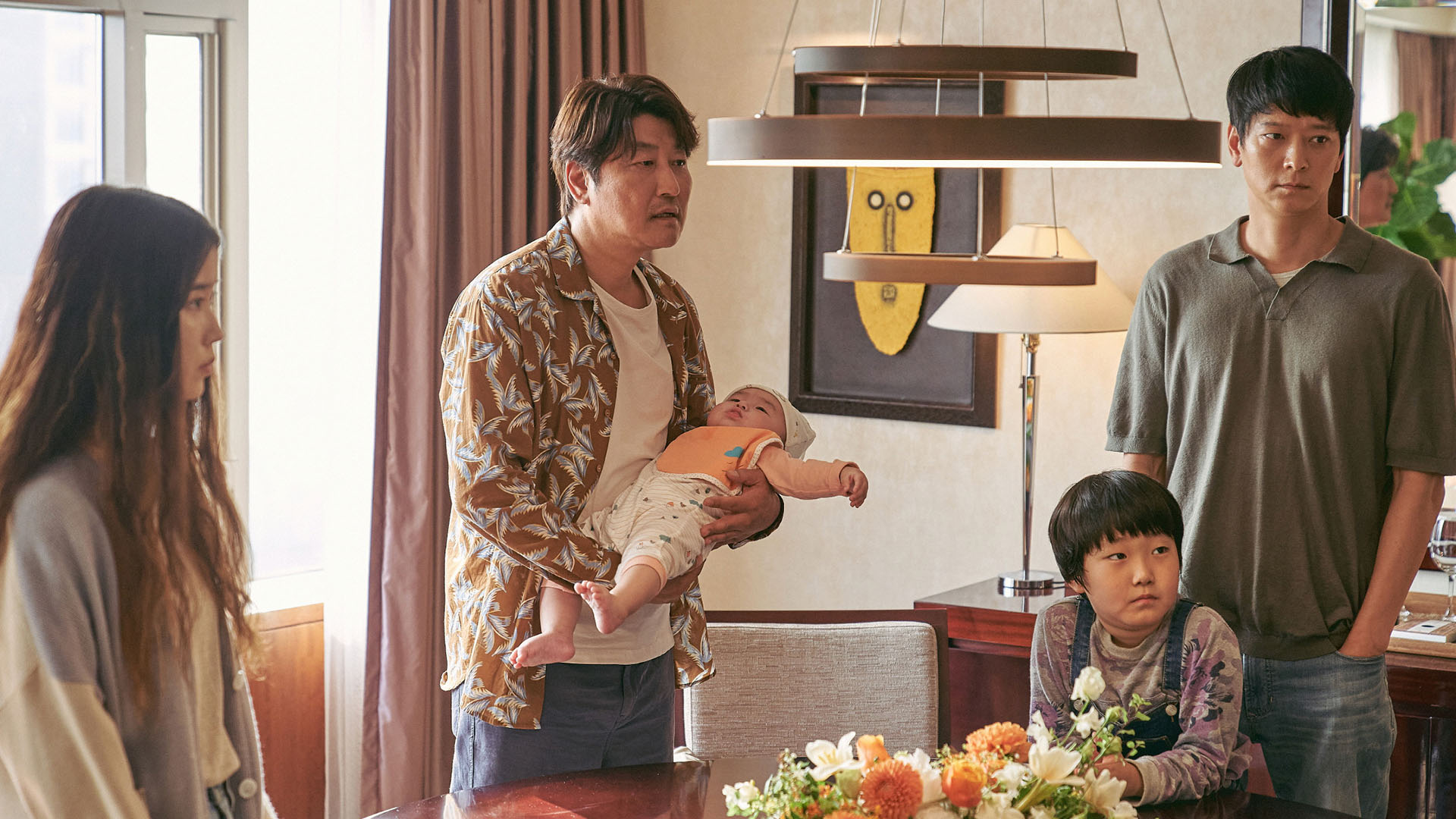If parenthood’s bond can be bought, asks Broker, what would you sell it for?

In a Cannes award-winning performance, Song Kang-ho (Parasite) leads the latest film from Palme d’Or winner Hirokazu Kore-eda (Shoplifters), exploring the adoption baby boxes of Korea. The director remains consistent in his ability to find a found family in every situation, writes Fatima Sheriff.
Broker (2022)
Broker is Hirokazu Kore-eda’s Korean debut, taking a closer look at baby boxes, a practice wherein mothers can anonymously give up their newborns for adoption. A film ten years in the making after his initial research for Like Father, Like Son, the director uses multiple angles to carefully dissect the emotional implications of this transaction, and what it can mean for the society involved.
Starting with the wan, tired and emaciated young mother (Ji-eun Lee) leaving her baby Woo-sung just outside a church baby box, she sets off a chain of events that brings together several unlikely characters. Stealing away the baby Woo-sung from the adoption system Sang-hyun (Song Kang-ho, in a Cannes Best Actor-winning performance) and Dong-soo (Gang Dong-won), the titular hustlers, go about trying to find a buyer for the child. A pair of policewomen is hot on their tail (Lee Jou Young and Wachowski icon Bae Doona), hoping to catch them in the act. It is a chase that breaks down the nature of parenthood. Can this bond be bought, and how much are you willing to sell it for?
Though on paper the human traffickers do seem immoral, the film dances within the grey area of their actions. As they argue with the returning mother, is this theft or benevolence? Kidnapping or just another method of adoption? With a fluctuating price varying between the low-balling of 4 million won (around $3085 USD) to the bribery of 40 million that adds another zero to the price tag of this adorable baby, finding a home and a price for Woo-sung proves more challenging than initially anticipated.
As ever, Hirokazu’s script delicately dissects the issues at hand, in a humanising and endearing way that leaves you rooting for each character in this difficult situation. From laughable moments of improvisation, to brash and heated arguments, to graceful breathtaking moments of quiet dialogue, the power dynamics shift constantly and relationships build. Though the moments of scoring feel very random, there is a sense that the pared-back solo piano represents the lonely dilemma of mother So-young while the later introduced strings represent broker Dong-soo’s harmonisation as a care-home kid himself, he begins to extend his tentative sympathy.
Driven by capitalism, from the eager to succeed cops who become too invested in enabling the transaction to the broke brokers with a car whose back door won’t even close properly and the unravelling tale of what drove So-young to give her son away, money looms over each character.

Song Kang-Ho’s broker Sang-hyun in particular is a gentle giant, a laundrette owner in the stickiest situation of them all (with 60 million won debt owed to some seriously scary gangsters) he never lets his fear lead him away from concern for Woo-sung, in one particularly adorable scene, he holds the baby in a sling carrier in front of him while he does laundry. Another highlight is the utterly charming child acting of Seung-soo Im as Hae-jin, a determined 8-year-old care home kid who adopts this car full of misfits as his own.
Though not perhaps as devastating as Shoplifters or as heavily stylised as Our Little Sister, thematically Hirokazu Kore-eda’s work remains consistent in his ability to find a found family in every situation. With an array of characters meant to represent larger issues, the director stretches the limits of serendipity, making Broker more chaotic, but in execution, each actor brings their best to the screen, making every person on screen understandable.




















